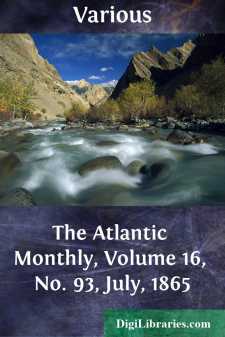Categories
- Antiques & Collectibles 13
- Architecture 36
- Art 48
- Bibles 22
- Biography & Autobiography 813
- Body, Mind & Spirit 142
- Business & Economics 28
- Children's Books 17
- Children's Fiction 14
- Computers 4
- Cooking 94
- Crafts & Hobbies 4
- Drama 346
- Education 46
- Family & Relationships 57
- Fiction 11829
- Games 19
- Gardening 17
- Health & Fitness 34
- History 1377
- House & Home 1
- Humor 147
- Juvenile Fiction 1873
- Juvenile Nonfiction 202
- Language Arts & Disciplines 88
- Law 16
- Literary Collections 686
- Literary Criticism 179
- Mathematics 13
- Medical 41
- Music 40
- Nature 179
- Non-Classifiable 1768
- Performing Arts 7
- Periodicals 1453
- Philosophy 64
- Photography 2
- Poetry 896
- Political Science 203
- Psychology 42
- Reference 154
- Religion 513
- Science 126
- Self-Help 84
- Social Science 81
- Sports & Recreation 34
- Study Aids 3
- Technology & Engineering 59
- Transportation 23
- Travel 463
- True Crime 29
Our website is made possible by displaying online advertisements to our visitors.
Please consider supporting us by disabling your ad blocker.
The Atlantic Monthly, Volume 16, No. 93, July, 1865
by: Various
Categories:
Description:
Excerpt
YOUNG MEN IN HISTORY.
History is an imperfect record of nations and races, diverse in their position and capacities, but identical in nature and one in destiny. Viewed comprehensively, its individuals and events comprise the incidents of an uncompleted biography of man, a biography long, obscure, full of puzzling facts for thought to interpret, and more puzzling breaks for thought to bridge, but, on the whole, exhibiting man as moving and man as moving forward. If we scrutinize the character of this progress, we shall find that the forces which propel society in the direction of improvement, and the ideas we form of the nature of that improvement, are the forces and the ideas of youth. The world, indeed, moves under the impulses of youth to realize the ideals of youth. It has youth for its beginning and youth for its end; for youth is alive, and progress is but the movement of life to attain fuller, higher, and more vivid life. Youth, too, is nearer to those celestial fountains of existence whence inspiration pours into the heart and light streams into the brain. Indeed, all the qualities which constitute the life of the soul, and which preserve in vigor and health even the practical faculties of the mind,—freshness, ardor, generosity, love, hope, faith, courage, cheer,—all these youth feels stirring and burning in its own breast, and aches to see fulfilled in the common experience of the race. But in age these fine raptures are apt to be ridiculed as the amiable follies of juvenile illusions. In parting, however, with what it derides as illusions, does not age part with the whole of joy and by far the most important element of wisdom? The world it so sagaciously aims to inaugurate, what is it but a stationary and decrepit world,—a world which would soon decay, and drop into the abyss of nothingness, were it not for the rejuvenating vitality poured into it by the youth it cynically despises? True wisdom, indeed, springs from the wide brain which is fed from the deep heart; and it is only when age warms its withering conceptions at the memory of its youthful fire, when it makes experience serve aspiration, and knowledge illumine the difficult paths through which thoughts thread their way into facts,—it is only then that age becomes broadly and nobly wise.
If we thus discern in the sentiments and faculties of youth the animating and impelling soul of historical events,—if, wherever in history we mark a great movement of humanity, we commonly detect a young man at its head or at its heart,—we must still, I admit, discriminate between youth and young men, between the genial action of youthful qualities and the imperfections and perversions of youthful character. Youth we commonly represent under the image of morn,—clear, fresh, cheerful, radiant, the green sward trembling and gleaming with ecstasy as the rising sun transfigures its dew-drops into diamonds; but then morn is sometimes black with clouds, and foul with vapors, and terrible with tempests. In treating, therefore, of the position and influence of young men in history, let us begin with those in whom the energies of youth were early perverted from their appropriate objects, and fell under the dominion of sensual appetites or malignant passions....












